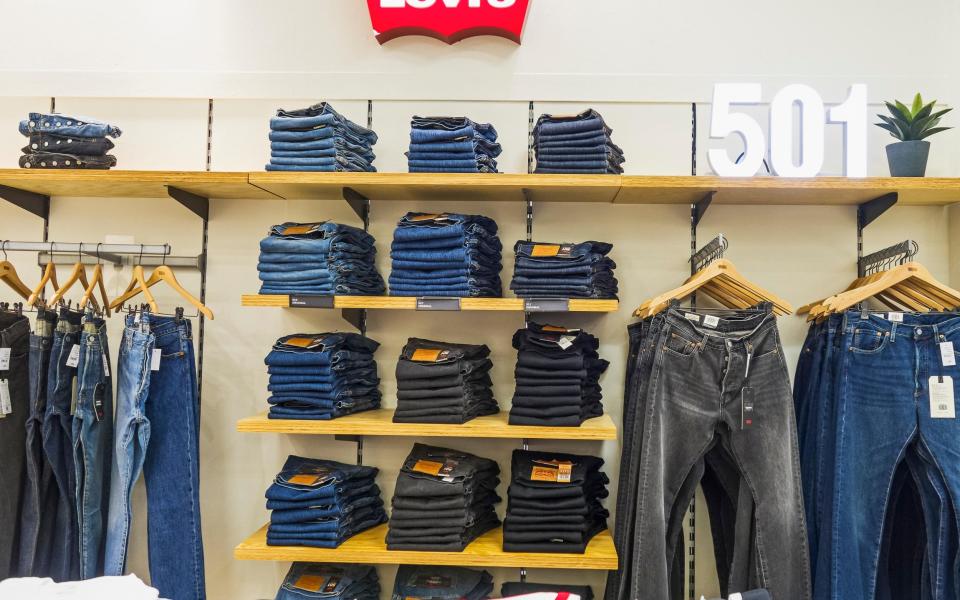Labour is considering scrapping legacy EU laws which are empowering big companies to “overcharge” shoppers and the NHS.
The Prime Minister has been urged to take advantage of Brexit freedoms to revoke the rules that impose an “artificial tax” on consumers.
Britain still follows EU trademark rules which prevent retailers and public services from shopping around the world for the cheapest goods.
The regulations give global brands total control over their supply chains meaning they can insist UK firms only buy from wholesalers in Europe.
An official impact assessment has found that as a result shoppers are paying inflated prices for goods like electronics, cosmetics, books and clothing.
ADVERTISEMENT
Studies have suggested the restrictions are adding around 10 per cent to the price of branded products and costing the NHS hundreds of millions a year.
‘Suppressing freely competitive market’
A new report by the Institute for Economic Affairs think tank found that businesses are using them to “suppress a freely competitive market.
In response the Government said ministers were actively “considering” whether to axe the rules and would make a decision “in due course”.
It comes with inflation running at a higher than expected rate and families continuing to face a cost of living crisis as the economy flatlines.
Most countries outside of Europe, including Canada, the US and Singapore, do not impose such restrictions on imports.
‘Give consumers greater choice’
Martin Howe KC, a leading barrister who co-authored the IEA report, said the rules should be scrapped to give British consumers greater choice.
ADVERTISEMENT
He said: “An EU rule we still haven’t reformed five years after leaving lets brand owners use these rights to keep their own genuine goods from coming into the UK market from the rest of the world.
“This allows multinationals to overcharge UK consumers compared with elsewhere and we should not allow our intellectual property laws to be used to suppress a freely competitive market.”

The rules stem from the EU’s 1989 Trade Marks Directive and have been in force in Britain since a landmark 2001 verdict by the European Court of Justice.
In that ruling EU judges used the law to block Tesco from selling Levi’s jeans that it had imported at a lower price from a wholesaler in the US.
The previous Conservative government consulted in 2021 on scrapping the ban with Kemi Badenoch, the then business secretary, thought to be in favour.
‘Positively impact consumer welfare’
An impact assessment drawn up at the time last year found that doing so “may put downward pressure on existing domestic supplier prices”.
ADVERTISEMENT
“A move to an international regime may positively impact on consumer welfare in terms of increased availability of goods, competition and lower prices paid,” it found.
The assessment also said scrapping the rules would negatively affect big firms as it would “reduce or constrain their ability to increase prices”.
But the rules were never changed amid opposition from the Department for Science, Innovation and Technology (DSIT) which oversees trademark rights.
‘Brits paying far too much for far too long’
Matthew Lesh, who co-authored the IEA report, said: “Brits have been paying far too much for Levi’s jeans, Chanel No. 5 and iPhones for too long.
“Outdated import restrictions act as an artificial tax, inflating prices and boosting corporate profits at our expense.
“Now, after Brexit, it makes no sense to welcome imports from the EU while blocking them from elsewhere.
ADVERTISEMENT
“It’s high time we level the playing field, let competition work for us, and put money back in people’s pockets.”
A Government spokesman said: “Parallel importation laws can play an important role for many business sectors, as part of a balanced and stable IP framework.
“Our current exhaustion of IP rights regime enables IP-protected goods to be parallel imported from the European Economic Area.
“We are considering what the UK’s future exhaustion regime should be. And if there is to be a change, how any change should be implemented.”
“We understand that businesses are keen for an update on this matter and an announcement will be made in due course.”
EMEA Tribune is not involved in this news article, it is taken from our partners and or from the News Agencies. Copyright and Credit go to the News Agencies, email news@emeatribune.com Follow our WhatsApp verified Channel




